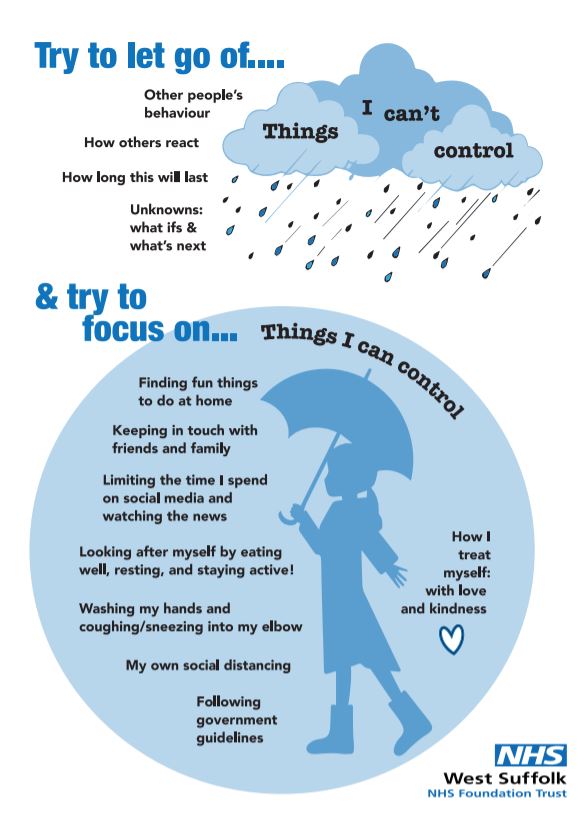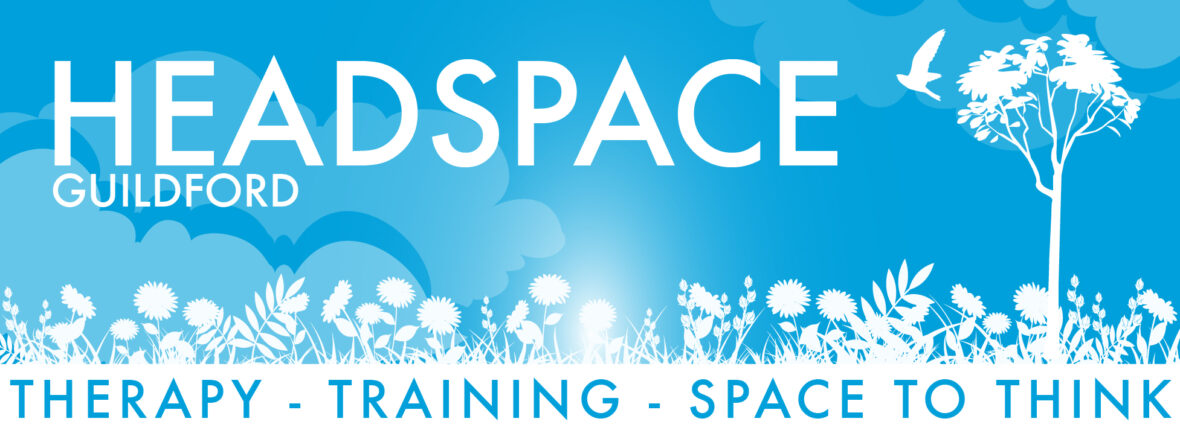Let’s face it. This hasn’t been the easiest of years. Even if you loved lockdown or have welcomed the chance to be at home more, the challenges have been many. The constant changes and the uncertainty of the situation have been significant for many people in all of this. And, they continue to be significant. It’s hard to predict what will happen next, how things will go, what we’ll be doing for Diwali, Hanukkah, Christmas, New Year. This can leave is feeling unsettled, low or anxious, or sometimes all three of those things.
So now, more than ever, we need to develop skills to manage the uncertainty we are having to face. This involves accepting, and not getting sucked into, the things we cannot change. This doesn’t mean pushing them away. It doesn’t mean pretending they are not there. It means acknowledging that those challenges are there and letting them be. It means focusing on those things we have control of.
There’s a lovely graphic produced by West Suffolk NHS foundation trust which shows us this.

Learning to sit with uncertainty, to acknowledge it without being sucked into difficult thoughts or low mood can be difficult. It’s a skill that takes practice. When I’m talking to children I often say to them that if I was to take up playing rugby, cricket or synchronised swimming tomorrow, the chances are I would be pretty rubbish at them. They’re all things I’ve not done before and I’ve got no skills in the area. My body wouldn’t know what to do, how to move, where to put itself. I wouldn’t know what I was supposed to be focusing on or where I should look. I wouldn’t know when to act and when to wait.
But, if, over time, I went regularly to practice, if I paid attention to what the coaches were saying, thought about what I was doing, I would get better. Not straight away. But I would improve. Would I still make mistakes? Certainly. Would I be good at it immediately? Certainly not. But I would improve.
The same is true of learning to develop the skills of letting go of the things we can’t change. Over time, with practice, we get better at it. We won’t be perfect straight away. We will sometimes be able to do it and sometimes not, just as happens with any other skill we learnt. But what we can do is give ourselves consistent practice of noticing the things that bother us, of naming them for ourselves and then of accepting that we can’t change them and focusing on what we can. This will help us to sit better with the challenges, despite how hard they might feel for us.
As ever, the first step is often to take a deep breath. There’s immeasurable power in it. After that, it’s one step at a time. Right. I’m off to learn synchronised swimming…
